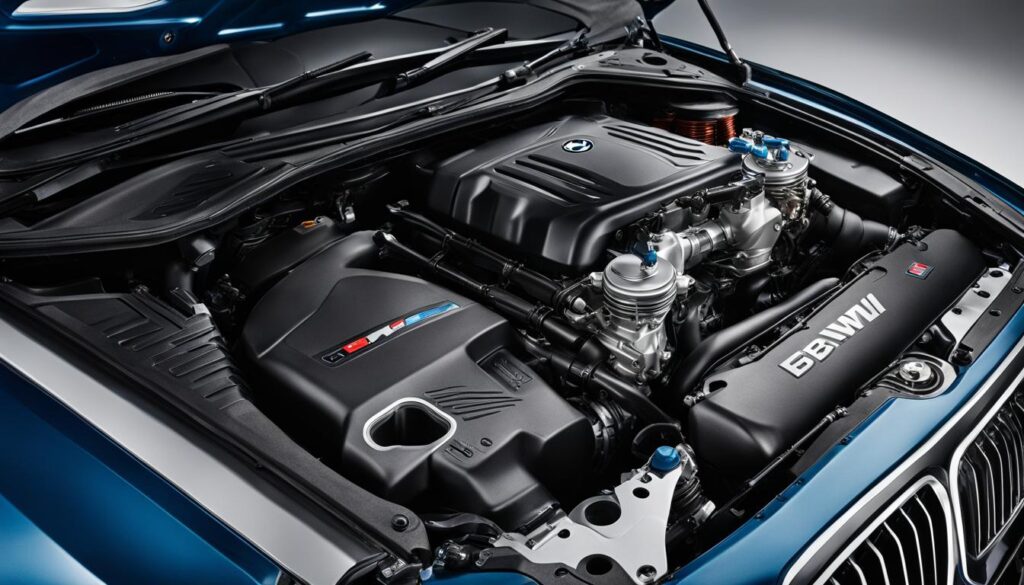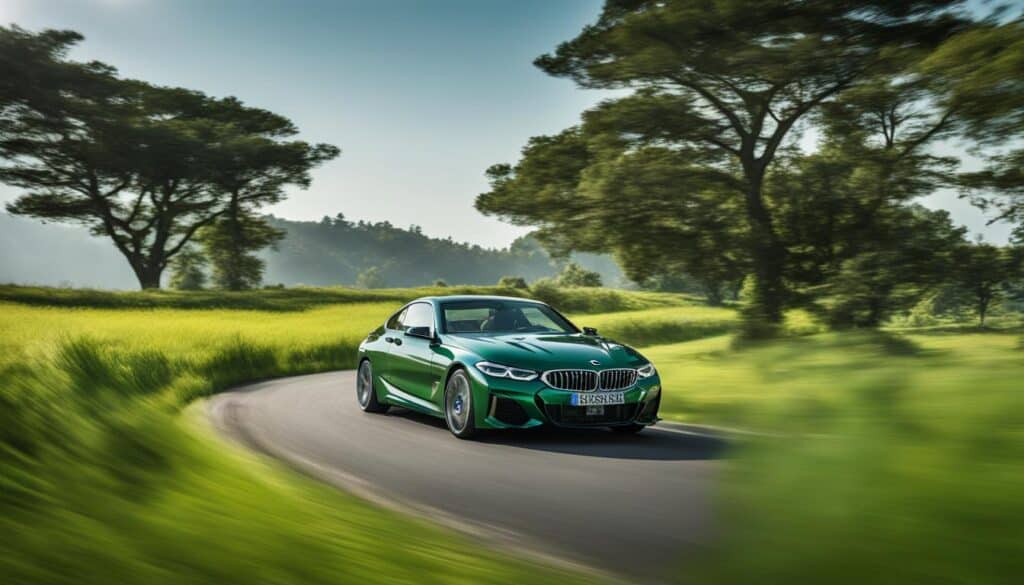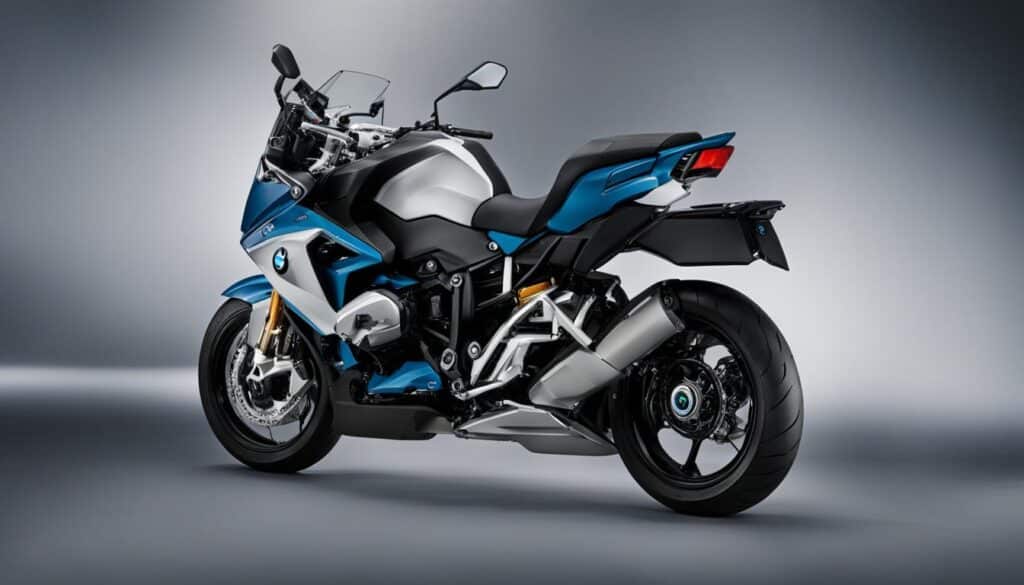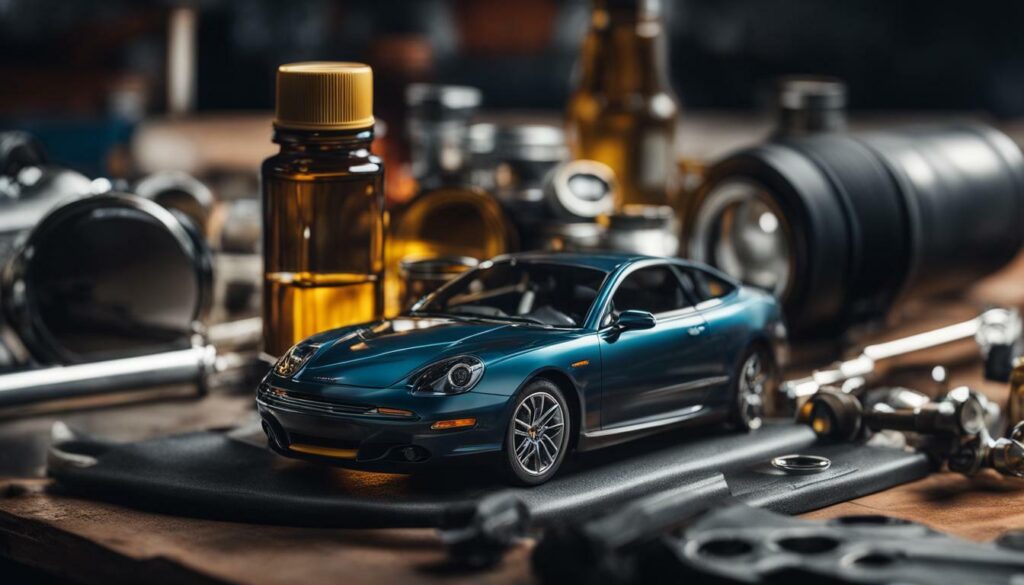As an automobile enthusiast, I often get asked, “How good are BMW diesel engines?” Well, in this article, I will dive into the performance, reliability, efficiency, and advantages of BMW diesel engines to give you a comprehensive understanding of what sets them apart. So, let’s get started!
BMW, renowned for its luxury vehicles that seamlessly blend power and sportiness, has also gained a reputation for its diesel engines. However, some concerns have been raised regarding their reliability. In this article, we will examine the facts and dispel any doubts, helping you make an informed decision when considering a BMW with a diesel engine.
Key Takeaways:
- BMW diesel engines are known for their performance and power.
- Reliability can vary among different BMW models.
- BMW diesel engines offer excellent fuel economy and low emissions.
- Regular maintenance is crucial to ensure the longevity of BMW diesel engines.
- BMW diesel engines have several advantages over gasoline engines.
Is BMW Reliable?
When it comes to luxury vehicles, BMW is often regarded as a prestigious brand that offers powerful performance and sporty appeal. However, there have been concerns about the reliability of BMW vehicles, particularly their diesel engines. In recent years, BMW has scored below average in reliability ratings according to consumer reports. As an owner of a BMW vehicle, it’s essential to be aware of common problems that may arise.
Common problems reported by BMW owners include issues with non-engine electrics, vehicle software, lighting, and dashboard displays. While these problems can be frustrating, it’s important to note that reliability can vary among different BMW models. Some models may experience more issues than others, and regular maintenance plays a crucial role in preventing and addressing potential issues.
“I have owned a BMW for several years now, and while I appreciate its performance and aesthetics, I have encountered some reliability issues. The vehicle’s software has required updates, and I have experienced problems with the dashboard display. However, these issues have been resolved through regular maintenance and the assistance of BMW’s technical support team.” – BMW owner
Most Reliable BMW Models
Although BMW’s overall reliability rating has dipped in recent years, certain models have proven to be more dependable than others. Here are some of the most reliable BMW models:
These models have demonstrated better reliability ratings and are less prone to common BMW problems. It’s important to consider these models when making a purchasing decision.
BMW Reliability Statistics
| Year | Reliability Rating | Percentage of Owners Reporting Problems |
|---|---|---|
| 2019 | Below Average | 27% |
| 2018 | Average | 25% |
| 2017 | Above Average | 23% |
The table above displays the reliability statistics for BMW vehicles in recent years. While the ratings have varied, it’s clear that BMW has room for improvement in terms of reliability. However, it’s worth mentioning that the reported problems only account for a percentage of owners, and many BMW owners are satisfied with the overall performance and ownership experience.
Despite concerns about reliability, it’s important to keep in mind that regular maintenance and proper care can significantly enhance the performance and reliability of BMW vehicles. By following the recommended maintenance schedule and promptly addressing any issues, BMW owners can enjoy a reliable and enjoyable driving experience.
If you’d like to learn more about BMW diesel engine performance, please continue reading in the next section.
BMW Diesel Engine Performance
BMW diesel engines are renowned for their impressive performance and power. With a range of variants available, these engines offer different levels of horsepower and torque to suit various driving preferences. Depending on the specific model, the power output of BMW diesel engines can range from 154 HP to 241 HP.
One of the key advantages of BMW diesel engines is their exceptional fuel economy. These engines are designed to provide excellent mileage, allowing drivers to enjoy longer trips without the need for frequent refueling. The fuel efficiency of BMW diesel engines is a testament to the brand’s commitment to delivering both power and efficiency.
The performance of BMW diesel engines is a result of advanced engineering and technology. These engines are built with precision and attention to detail, ensuring optimal power delivery and a smooth driving experience. The combination of power, performance, and fuel economy makes BMW diesel engines a popular choice among enthusiasts and everyday drivers alike.
BMW Diesel Engine Performance Specifications
| Engine Variant | Horsepower (HP) | Torque (lb-ft) |
|---|---|---|
| BMW Diesel Variant 1 | 154 HP | 280 lb-ft |
| BMW Diesel Variant 2 | 185 HP | 295 lb-ft |
| BMW Diesel Variant 3 | 210 HP | 332 lb-ft |
| BMW Diesel Variant 4 | 241 HP | 383 lb-ft |
The table above provides an overview of the power and torque specifications of different BMW diesel engine variants. These numbers illustrate the range of performance options available and highlight the power that BMW diesel engines can deliver.
Whether you’re looking for a balance between power and fuel economy or seeking the exhilaration of high-performance driving, BMW diesel engines offer a diverse range of options to cater to your preferences.

BMW Diesel Engine Reliability
When it comes to the reliability of BMW diesel engines, it’s essential to understand that dependability can vary among different models. However, consumer reports indicate that BMW has an average reliability rating. Approximately 25% of BMW owners report the need for repairs within the first three years of ownership. It’s worth noting that certain older BMW models have experienced common issues, including exhaust/emission problems and suspension-related concerns.
“While concerns have been raised about the reliability of BMW diesel engines, it’s important to remember that reliability can differ from model to model.”
Despite these concerns, BMW models boast a strong reputation for high performance and overall durability. With proper maintenance and care, owners can help ensure the longevity and reliability of their BMW diesel engines.
| BMW Diesel Engine Reliability | Common Issues |
|---|---|
| Overall Reliability Rating | Average |
| Percentage of Repairs Needed within First 3 Years | Approximately 25% |
| Common Issues | – Exhaust/emission problems – Suspension-related concerns in older models |
While concerns about reliability exist, it’s important to note that BMW diesel engines offer a compelling mix of performance and durability. By addressing common issues and following recommended maintenance schedules, owners can enjoy a reliable and enjoyable driving experience with their BMWs.
Benefits of BMW Diesel Engines
BMW diesel engines offer several advantages that make them a popular choice among car buyers. From low emissions to powerful performance, BMW diesel engines provide a range of benefits for drivers looking for a reliable and efficient driving experience.
Low Emissions and Environmental Compliance
One of the key advantages of BMW diesel engines is their low emissions. These engines are designed to comply with strict environmental standards, making them environmentally friendly options. By reducing the release of harmful pollutants, BMW diesel engines contribute to a cleaner and healthier environment for all.

High Torque for Acceleration and Smooth Driving
BMW diesel engines are known for their high torque, which allows for strong acceleration and a smooth driving experience. The engines deliver power efficiently, providing drivers with the responsiveness they need on the road. Whether it’s merging onto highways or overtaking slower vehicles, BMW diesel engines offer the torque needed to confidently navigate various driving situations.
Durability and Reliability
In addition to their performance capabilities, BMW diesel engines are also known for their durability and reliability. These engines are built to withstand the test of time, offering a long-lasting and dependable driving experience. With proper maintenance, BMW diesel engines can perform at their best for many years, providing peace of mind to owners.
Overall, BMW diesel engines offer a winning combination of low emissions, high torque, and durability. These engines not only provide a powerful and efficient driving experience but also prioritize environmental sustainability. Whether you’re an eco-conscious driver or someone who values performance, BMW diesel engines are a fantastic option to consider.
BMW Diesel Engine Efficiency
When it comes to fuel efficiency, BMW diesel engines are in a league of their own. These engines are designed with a strong focus on optimizing fuel consumption while providing exceptional performance. Let’s explore the efficiency and fuel economy of BMW diesel engines in more detail.
Efficient Fuel Usage
BMW diesel engines are engineered to maximize the usage of every drop of fuel, ensuring that you get the most out of each tank. With advanced fuel injection systems and engine management systems, BMW diesel engines deliver remarkable fuel efficiency, allowing you to cover more distance without the need for frequent refueling.
Reduced Emissions
In addition to their impressive fuel economy, BMW diesel engines also prioritize environmental sustainability. These engines are equipped with advanced emission control technologies, minimizing harmful pollutants released into the atmosphere. By reducing emissions, BMW diesel engines contribute to a cleaner and greener driving experience.
The Benefits of Efficient Fuel Consumption
Efficient fuel consumption not only saves you money at the pump but also enables you to go the extra mile on your journeys. Whether you’re planning a long road trip or a daily commute, the fuel economy of BMW diesel engines allows for fewer stops and more uninterrupted driving pleasure.
“BMW diesel engines combine power, performance, and fuel efficiency, making them a compelling choice for those seeking a balance between performance and economy.”
Furthermore, the efficiency of BMW diesel engines means less reliance on fossil fuels, contributing to overall energy conservation and sustainability.
BMW Diesel Engine Power and Performance Variants
BMW offers a range of power and performance variants for their diesel engines, catering to different driving preferences and needs. The power output of BMW diesel engines varies depending on the specific model and engine variant, with a range from 154 HP to 241 HP.
The higher-powered variants deliver strong acceleration and impressive performance, ensuring an exhilarating driving experience. These engines unleash their power with precision and responsiveness, allowing drivers to effortlessly navigate various road conditions.
On the other hand, BMW also offers lower-powered variants that strike a balance between power and fuel efficiency. These engines provide ample power for everyday driving while maximizing fuel economy, making them an ideal choice for those seeking a more economical option without compromising performance.
| Engine Variant | Power Output (HP) |
|---|---|
| Variant 1 | 154 |
| Variant 2 | 183 |
| Variant 3 | 201 |
| Variant 4 | 241 |
Find Your Perfect Balance of Power and Efficiency
Whether you prioritize exhilarating performance or fuel efficiency, BMW offers a variety of diesel engine options to meet your preferences. These engines are engineered to deliver power, responsiveness, and efficiency, ensuring a thrilling and satisfying driving experience.
In the words of BMW CEO Robert Irlinger, “Our diesel engines are a testament to the power and performance that BMW embodies. They offer a perfect balance of strength and efficiency, allowing drivers to enjoy the best of both worlds.”
When considering a BMW diesel engine, it’s essential to assess your driving needs and preferences to choose the right variant. If you desire exhilarating acceleration and strong performance, opt for the higher-powered variants. Alternatively, if you value fuel efficiency without sacrificing power, the lower-powered variants provide an excellent balance for both city driving and long journeys.
Whichever variant you choose, BMW diesel engines combine cutting-edge technology with precision engineering, resulting in an exceptional driving experience that satisfies both the power-hungry and environmentally-conscious driver.
BMW Diesel Engine Maintenance and Repairs
Regular maintenance is crucial for ensuring the reliability and performance of BMW diesel engines. By following the recommended maintenance schedule provided by BMW, you can keep your engine running smoothly for years to come. Here are some essential maintenance tasks:
- Oil changes: Regular oil changes are necessary to keep the engine properly lubricated and prevent any damage. This helps maintain the engine’s performance and prolong its lifespan.
- Filter replacements: Filters, such as the air filter and fuel filter, should be replaced at regular intervals to ensure optimal engine performance and prevent any contaminants from entering the engine.
- Regular inspections: Periodic inspections, including visual checks and diagnostic tests, can help identify any potential issues or warning signs early on. This allows for timely repairs and prevents major problems from arising.
While BMW diesel engines are generally reliable, occasional repairs may be necessary, especially for common issues in older models. Some of the common repair areas include:
- Exhaust/emission problems
- Suspension issues
To ensure proper repairs, it is recommended to take your BMW diesel engine to a certified BMW service center or a reputable mechanic with experience working on BMW vehicles.
“Regular maintenance is the key to keeping your BMW diesel engine in top shape. By following the maintenance schedule and addressing any issues promptly, you can enjoy a smooth and reliable driving experience.” – BMW Service Expert
Proper maintenance and timely repairs not only enhance the longevity of your BMW diesel engine but also contribute to its overall performance and efficiency. By taking care of your engine, you can maximize its potential and ensure a pleasurable driving experience.
BMW Diesel Engines vs. Gasoline Engines
When considering BMW vehicles, one of the important decisions to make is whether to opt for a diesel engine or a gasoline engine. Both options have their own advantages and it’s essential to understand the key differences in order to make an informed decision.
Benefits of BMW Diesel Engines
BMW diesel engines offer several benefits that make them a compelling choice for many drivers:
- Higher Torque: Diesel engines, including BMW’s, are known for delivering higher torque compared to gasoline engines. This means better acceleration and a more effortless driving experience.
- Improved Fuel Economy: Diesel engines are more fuel-efficient than their gasoline counterparts. BMW diesel engines are designed to maximize fuel usage, resulting in longer trips on a full tank of fuel.
- Lower Emissions: BMW diesel engines have made significant advancements in reducing emissions. They comply with strict environmental standards and provide a greener driving experience.
- Longer Lifespan and Durability: Diesel engines are renowned for their longevity and durability. BMW’s diesel engines are no exception, offering a longer lifespan compared to gasoline engines.
Now, it’s important to note that gasoline engines also have their advantages:
- Higher Horsepower: Gasoline engines generally offer higher horsepower, which can translate to faster acceleration and an overall sportier driving experience.
Ultimately, the choice between a diesel engine and a gasoline engine depends on individual preferences and specific needs. If fuel efficiency, torque, and lower emissions are prioritized, then a BMW diesel engine may be the ideal choice. On the other hand, if a more powerful and high-performance driving experience is desired, a gasoline engine may be a better fit.
It’s worth considering the driving conditions, mileage, and intended usage when making this decision. Consulting with a BMW dealership or knowledgeable professionals can also provide valuable guidance.
“BMW diesel engines offer higher torque, improved fuel economy, lower emissions, longer lifespan, and durability compared to gasoline engines. However, gasoline engines may provide higher horsepower and faster acceleration.”
Comparison Table: BMW Diesel Engines vs. Gasoline Engines
| Factors | BMW Diesel Engines | Gasoline Engines |
|---|---|---|
| Torque | Higher torque, delivering better acceleration | Generally lower torque compared to diesel engines |
| Fuel Economy | Improved fuel efficiency for longer trips | Slightly lower fuel efficiency compared to diesel engines |
| Emissions | Compliance with strict environmental standards, lower emissions | Higher emissions compared to diesel engines |
| Lifespan and Durability | Longer lifespan and higher durability than gasoline engines | Smaller lifespan compared to diesel engines |
| Horsepower | Varies depending on the model and engine variant | Generally higher horsepower for a sportier driving experience |
Based on the comparison table above, it is clear that BMW diesel engines offer distinct advantages in terms of torque, fuel economy, emissions, and durability. However, gasoline engines do have their own strengths, primarily in higher horsepower.
As with any significant decision, it’s crucial to consider personal preferences, driving needs, and individual circumstances when selecting the engine type for a BMW vehicle. Assessing the pros and cons of each option will help in making an informed choice that aligns with specific requirements.
Conclusion
In conclusion, BMW diesel engines offer a winning combination of performance, reliability, and efficiency. While concerns have been raised about the reliability of BMW vehicles, particularly their diesel engines, it is crucial to acknowledge that reliability can vary across different models.
BMW diesel engines come with several advantages, including low emissions, high torque, and excellent fuel economy. These engines are designed to meet strict environmental standards, ensuring a cleaner driving experience. Moreover, the high torque provided by BMW diesel engines delivers impressive acceleration and a smoother ride.
To maintain the reliability and performance of BMW diesel engines, regular maintenance and proper care are essential. Following the recommended maintenance schedule provided by BMW, including routine oil changes, filter replacements, and inspections, will help keep the engine running smoothly for years to come.
All in all, BMW diesel engines offer a reliable and enjoyable driving experience, backed by their performance, efficiency, and the brand’s reputation for engineering excellence. With the right care and attention, owners can confidently rely on their BMW diesel-powered vehicles for a powerful and efficient journey.
FAQ
How good are BMW diesel engines?
BMW diesel engines are known for their performance, power, and fuel efficiency. They offer excellent power output, ranging from 154 HP to 241 HP, depending on the model and variant. BMW diesel engines also provide high torque, allowing for strong acceleration and a smoother driving experience.
What is the reliability of BMW diesel engines?
The reliability of BMW diesel engines can vary among different models. Consumer reports indicate that BMW has an average reliability rating, with around 25% of BMW owners reporting the need for repairs within the first three years of ownership. Common issues reported include exhaust/emission problems and suspension problems in older models.
What are the advantages of BMW diesel engines?
BMW diesel engines offer several advantages, including low emissions, high torque, and excellent fuel economy. They are known for their compliance with strict environmental standards and their durability, making them reliable options for long-term use.
How efficient are BMW diesel engines?
BMW diesel engines are highly efficient, offering excellent fuel economy. They are designed to maximize the usage of every drop of fuel, allowing for longer trips without frequent refueling. BMW diesel engines also have advanced fuel injection systems and engine management systems that optimize fuel consumption and reduce emissions.
What power and performance variants are available for BMW diesel engines?
BMW offers a range of power and performance variants for their diesel engines. The power output ranges from 154 HP to 241 HP, depending on the specific model and engine variant. The higher-powered variants provide strong acceleration and impressive performance, while the lower-powered variants offer a balance between power and fuel efficiency.
How do you maintain and repair BMW diesel engines?
Like any vehicle, BMW diesel engines require regular maintenance to ensure their reliability and performance. Routine maintenance includes oil changes, filter replacements, and regular inspections. In terms of repairs, BMW diesel engines may require occasional fixes for common issues such as exhaust/emission problems and suspension issues in older models. It is important to follow the recommended maintenance schedule provided by BMW to keep the engine running smoothly.
How do BMW diesel engines compare to gasoline engines?
BMW diesel engines offer several benefits over gasoline engines. They provide higher torque, improved fuel economy, and lower emissions. Diesel engines also tend to have a longer lifespan and higher durability compared to gasoline engines. However, gasoline engines may offer higher horsepower and faster acceleration in some cases. The choice between diesel and gasoline engines ultimately depends on individual preferences and specific needs.




